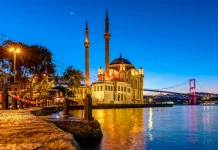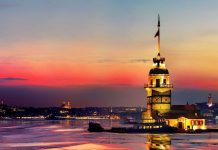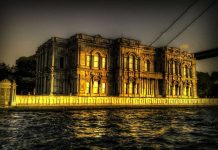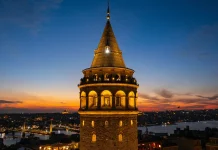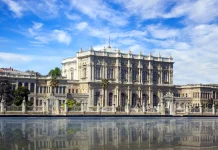General Information
-
Location: Sultanahmet Square, Istanbul.
-
Construction Date: Built between 1609–1617.
-
Founder: Ottoman Sultan Ahmed I.
-
Architect: Sedefkâr Mehmed Agha (a student of Mimar Sinan).
-
Significance: One of the most important mosques of the Ottoman Empire and the Islamic world. Known internationally as the “Blue Mosque.”
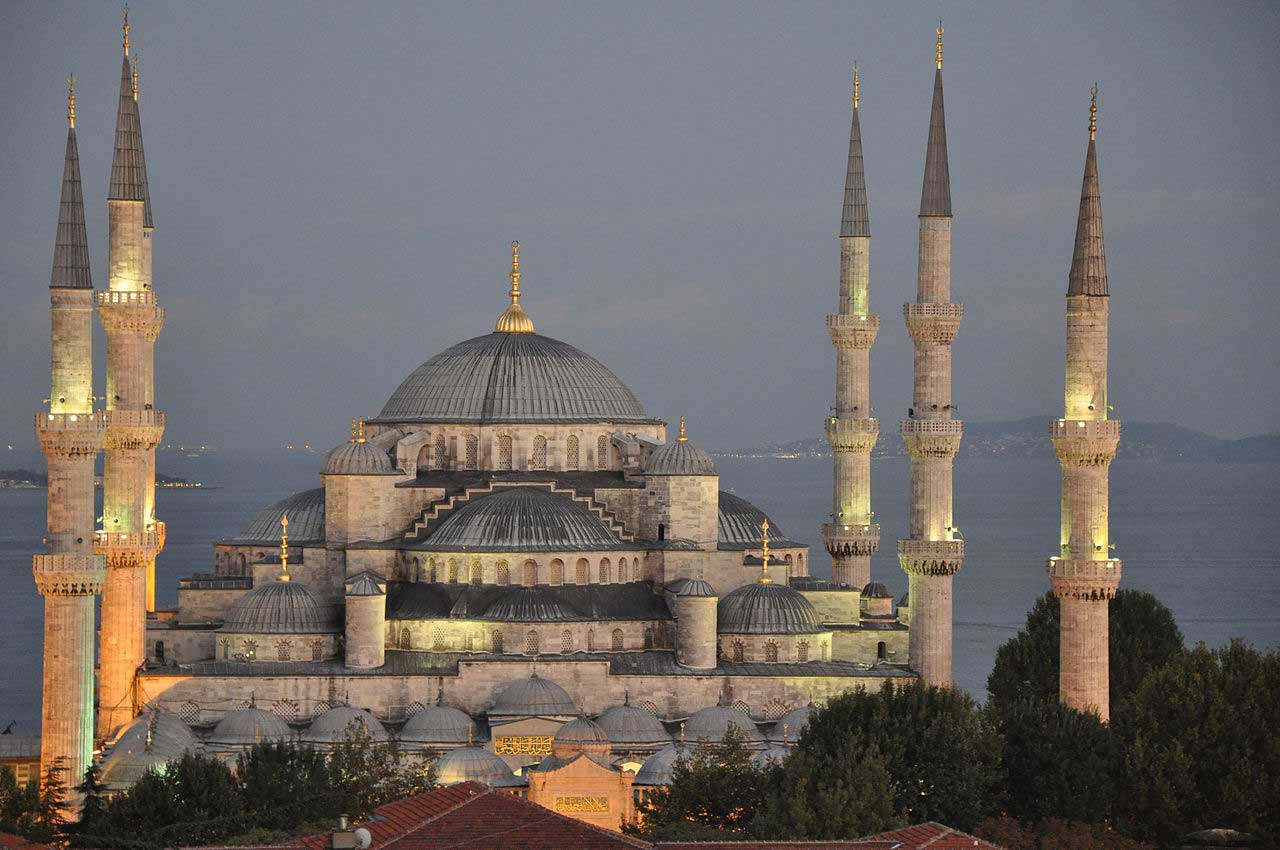
Architectural Features
-
Design: Represents the peak of classical Ottoman mosque architecture; its central dome, semi-domes, and spacious courtyard create a balance with Hagia Sophia across the square.
-
Dome: The main dome is 23.5 meters in diameter and 43 meters high.
-
Minarets: The mosque has 6 minarets. This caused controversy at the time since the Masjid al-Haram in Mecca also had six; the issue was resolved by adding a seventh minaret to Mecca’s mosque.
-
Interior: Decorated with about 21,000 İznik tiles. Their colors and the reflection of light give the mosque its characteristic bluish tone, hence the name Blue Mosque.
-
Courtyard: One of the largest courtyards among Ottoman mosques, surrounded by arcades.
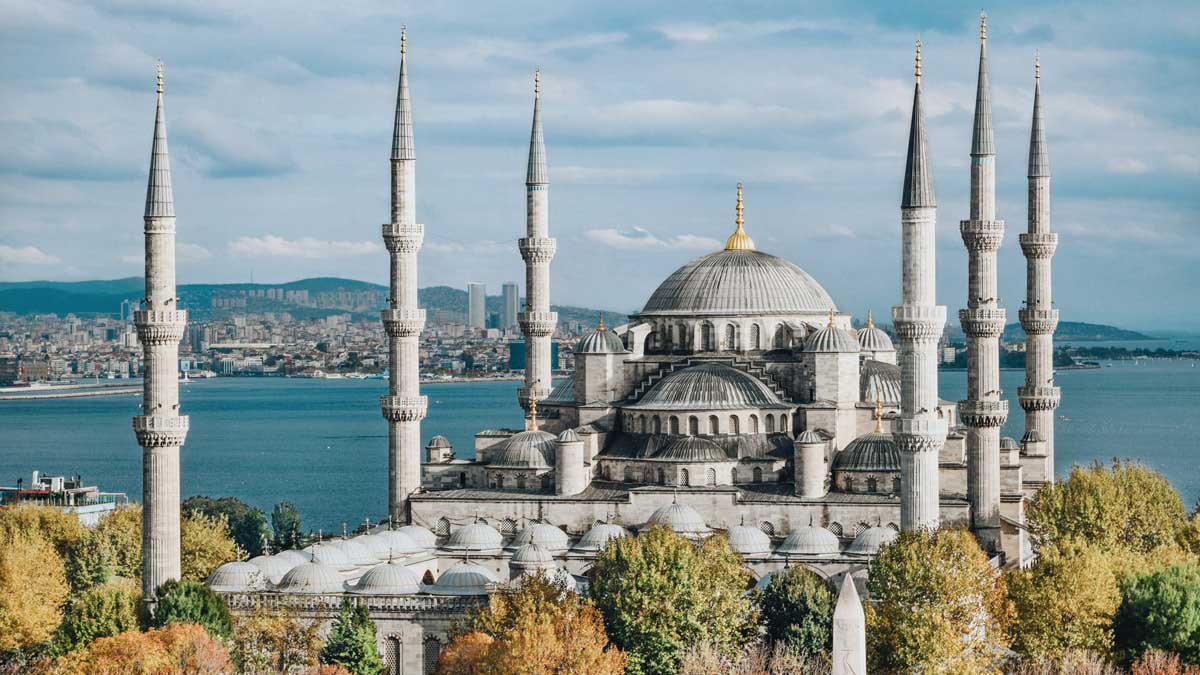
Art and Decoration
-
The interior features Islamic calligraphy panels, Quranic inscriptions, and beautifully designed stained-glass windows.
-
İznik tiles display motifs of tulips, carnations, roses, and geometric patterns.
Religious and Historical Importance
-
Place of Worship: Still an active mosque open for daily prayers.
-
Touristic Value: One of the most visited landmarks of Istanbul.
-
Location Symbolism: Situated directly opposite Hagia Sophia and the Hippodrome, symbolizing the Ottoman Empire’s architectural response to Byzantine heritage.
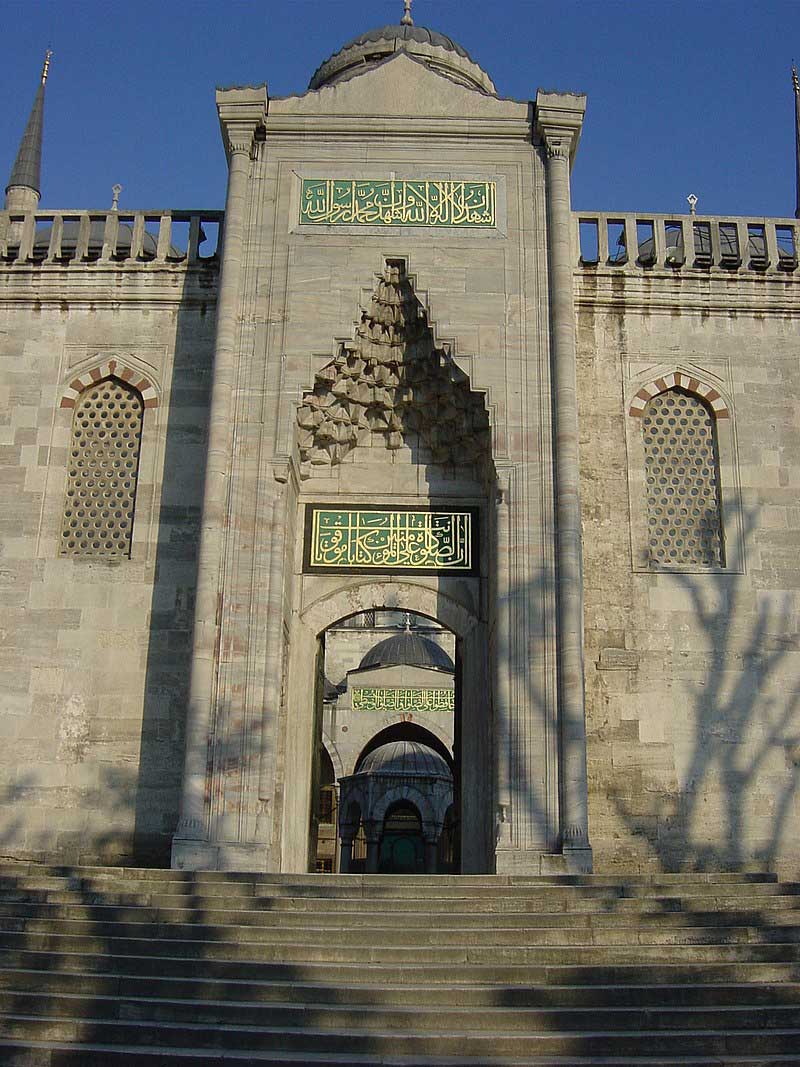
Visitor Information
-
Entrance is free of charge, but tourist entry pauses during prayer times.
-
Modest dress is required: women must cover their heads, and everyone should cover shoulders and knees.
-
Photography is allowed, but flash is discouraged.
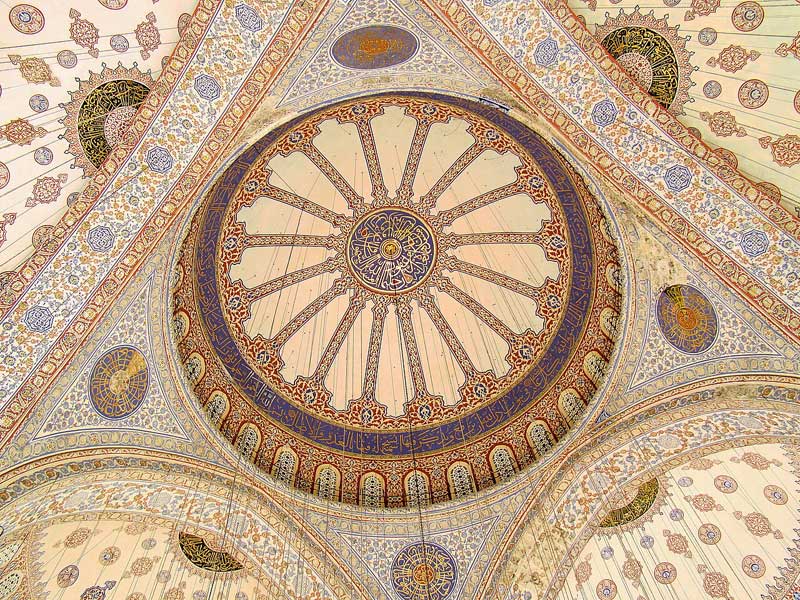
Significance
The Sultan Ahmed Mosque is considered one of the finest achievements of Islamic architecture. It remains both a functioning house of worship and a cultural heritage monument.

